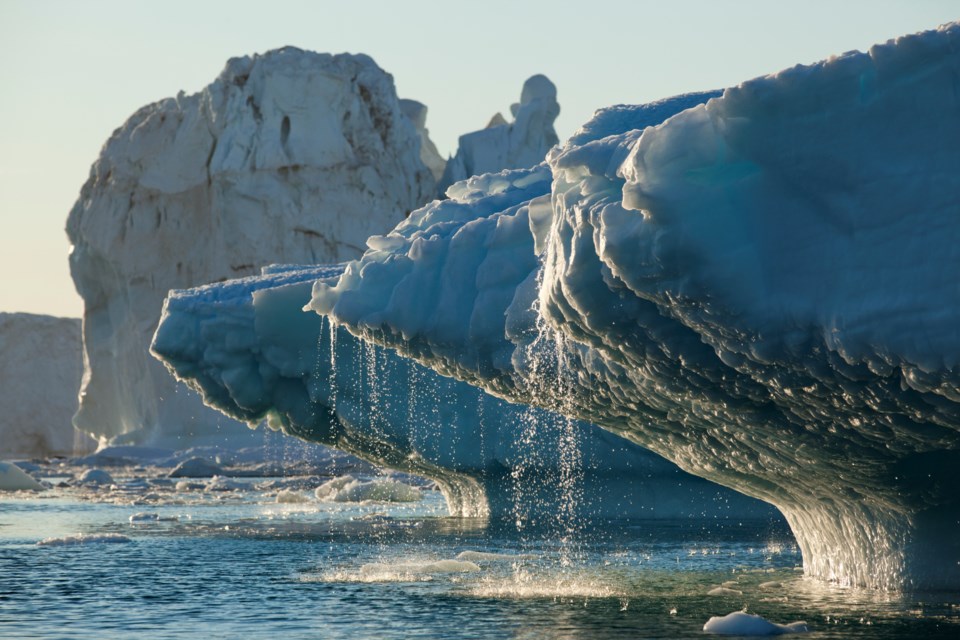A out of B.C. paints the clearest picture yet of the state of the Earth’s glaciers, and shows that they are melting faster than ever before.
Jointly funded by the University of Northern B.C. and the Hakai Institute, the study relied on a supercomputer—the equivalent of 584 modern computers running for a year straight—to construct digital elevation models based on more than 440,000 satellite images used to track the rate of mass loss from the Earth’s glaciers.
Co-author Dr. Brian Menounos, UNBC professor and Canada Research Chair in Glacier Change, said the satellite imagery gave the international team of researchers what is likely the most thorough and precise view yet of Earth’s glaciers.
“Clearly the rich, dense record that is afforded by space observation has really helped us visualize and quantify the change on a glacier-by-glacier scale and that really hadn’t been done prior to the work that we did,” he explained.
Researchers have long known that the Earth’s roughly 217,000 glaciers are receding, but this most recent study, published April 28 in the science journal, Nature, showed just how quickly the rate of glacial loss has accelerated this century.
Between 2000 and 2019, the world’s glaciers lost on average 267 gigatonnes of ice per year, representing 21 per cent of the Earth’s observed sea-level rise in that time. That pace has only picked up in recent years, too: Glaciers lost 227 gigatonnes of ice per year between 2000 and 2004, but between 2015 and 2019, that rate accelerated to 290 gigatonnes per year.
“There is a whole body of other science that suggests greenhouse gas emissions continue to rise, so there’s little doubt in my mind that the acceleration [in glacial melt] is partly driven by the increase in surface temperature and caused by greenhouse gas emissions,” Menounas said.
Glaciers along the western spine of North America are melting even faster, with their thawing rate increasing fourfold between 2000 and 2019. In B.C., where, due to a combination of cost and tricky terrain, only three glaciers are routinely monitored by federal researchers, the province’s glaciers haven’t fared much better, particularly those along the Coast Mountain range.
“We could show that there was about, I believe, a five-fold increase in melt in the most recent decade compared to the first decade,” Menounos said of B.C.’s roughly 15,000 glaciers. “That again is partly driven by changes in atmospheric circulation, but in large part globally, it’s due to surface temperature increase.”
With an estimated 150 million people now living on land that will be below the high-tide line by mid-century, the repercussions of sea-level rise cannot be ignored. Glaciers are responsible for more than a fifth of the roughly 22 centimetres that sea levels have risen since 1880, but it’s disappearing ice sheets that could have the largest impact on global sea levels in the long term.
“[Glaciers] may contribute something like 30 to 40 centimetres this century, but what we really need to start worrying about are the ice sheets, the Greenland and Antarctica ice sheets, because they have the capacity to change sea level by several metres within 100 to 200 years,” Menounos said.
Although the study includes some harrowing statistics of global glacial melt, Menounos said every individual has a role to play in reversing the trend.
“If we dramatically reduce greenhouse gas emissions, [glaciers] will come back as Earth returns to a balanced energy budget prior to industrialization. There are ways to get there, so there is hope,” he said. “But I do think it takes a global effort, and that spans from the international community to individual countries down to the individual making decisions about not what’s going to be an inconvenience for them, but rather what sort of planet they wish their children or their grandchildren to inherit.”

